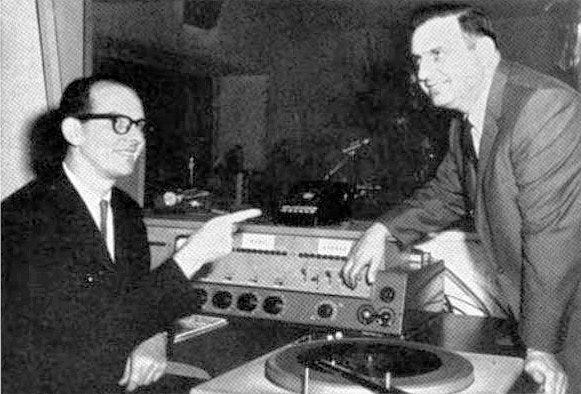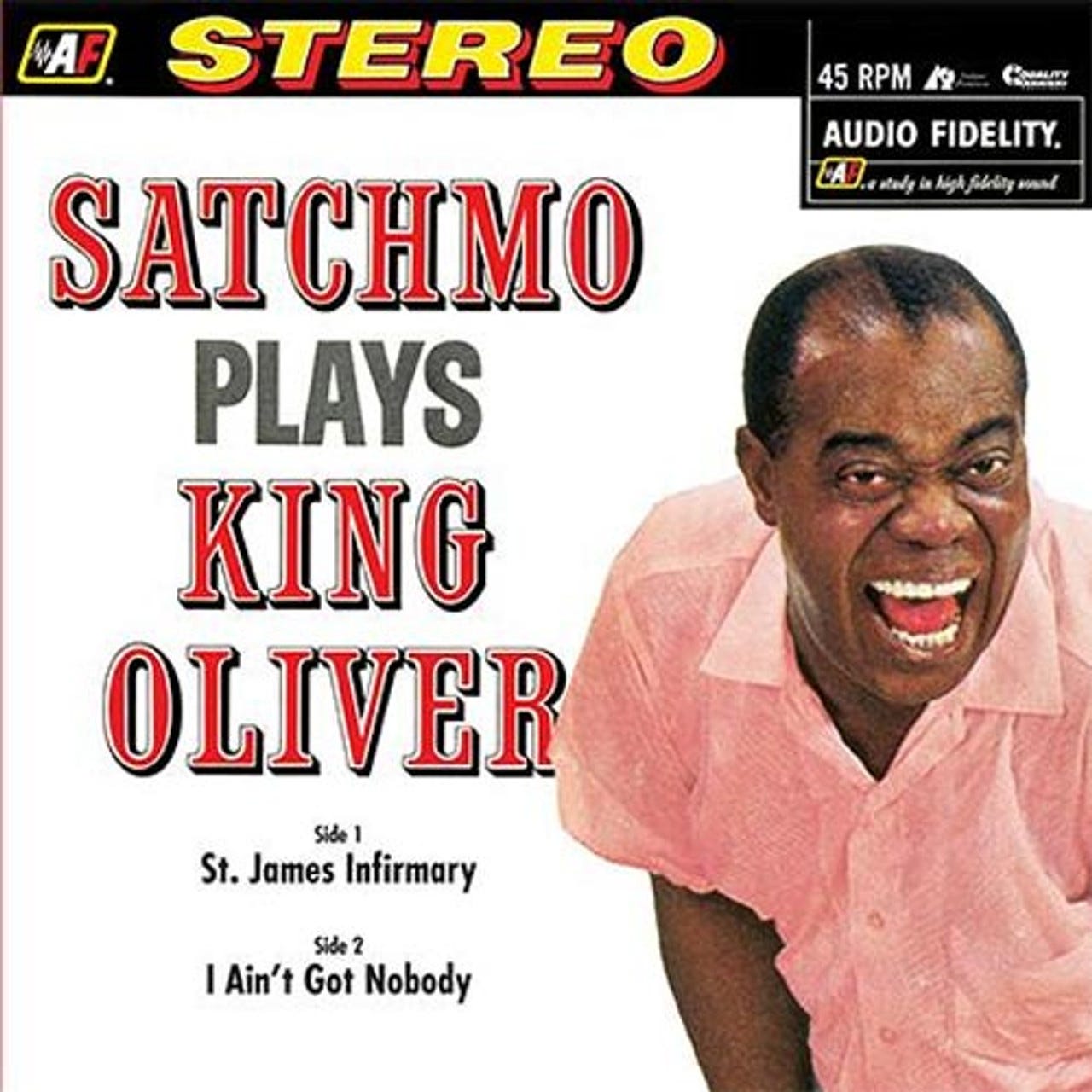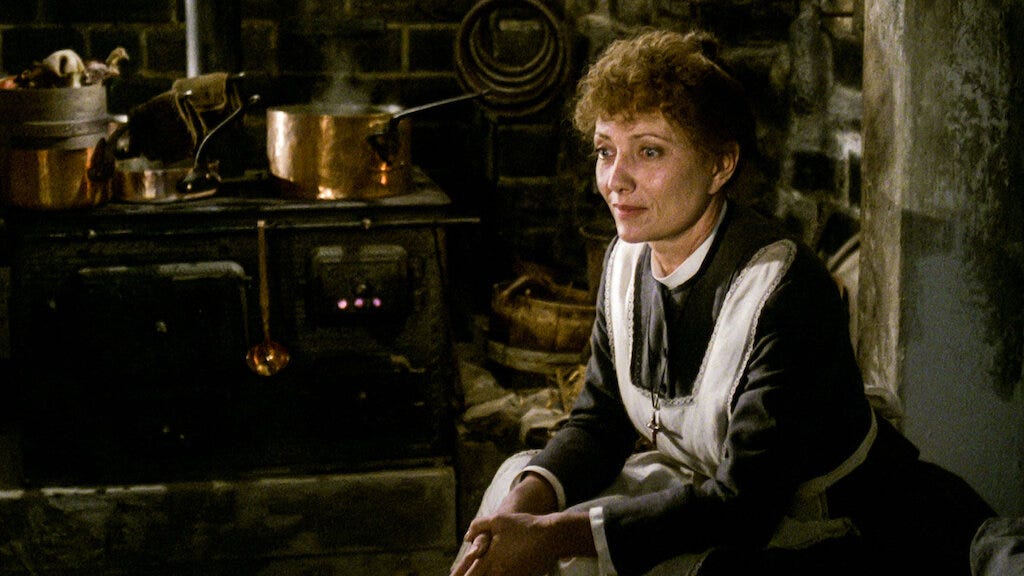Recognitio
When you give your deep attention to another human being, they flourish.
Tammy walked into the hipster burger bar looking very much like she had mucked a dirty barn.
Muck v. (British) — To remove manure and other dirt from a stable or other building where animals are kept.
I had just finished my “Goodnight/Good Cause” burger (a caffeinated BBQ burger that supports local musicians) when Tammy sat beside us. I had spent the afternoon helping a friend buy a couch—part of my say-yes-to-all-invites vow—and now, Tammy joined us to celebrate our sofa's success.
“Do you mind?” Tammy asked, cleaning out our remaining fries, “I’m starving.”
I turned my stool face-to-face. “Go ahead, we’re done.”
“Thanks.”
Earlier in the week, Carole Anne insisted that I listen to a podcast on reverse charisma (the magnetic quality of making others feel recognized and important by being a great listener), so I shifted my charisma into deep-listening mode.
I learned that Tammy managed a horse barn for the county and endured periodic burn-out from county politics, sniping from her staff, and haughty demands from wealthy horse owners.
I also learned that Tammy wasn’t any ol’ shit shoveler. Despite the muck boots, dirty jeans, and hoodie, she was a strikingly attractive 60-year-old who had been part of the Seattle grunge scene. In a life-changing jumble, she came to Atlanta, her artist boyfriend died too young, got a high-paying network security job (without a degree), flipped houses on the side, ran several Airbnbs, and jumped to take the barn mucking job — a sought-after position if you’re a horse person. Go figure.
More than mere listening, I consciously shifted into deep recognition and watched Tammy’s energy lighten, her burnout lift, and even her physiognomy transform — all from the quality of attention.
Jacob Needleman’s words came back to me:
When you give your deep attention to another human being, they flourish.
~ Jacob Needleman
Okay, what about me? I could use some attention. I started this year wanting to fill the holes in my heart with a mythical can of auto-body filler. Nearly a year later, I still feel a gnawing void, but I’m unsure what is actually missing. How come I’m not flourishing?
No girlfriend? Zero readership? Too much alone time?
I considered recognition and how Tammy transformed before my eyes. It’s a word Reshad used a lot.
Am I starved for recognition? My mother gave me lots of recognition, and I won some awards for my films in college. But recognition has always been elusive.
When I get too philosophic, I call Carole Anne. She was driving to South Carolina from Asheville.
Bruce: Carole Anne, I’m writing about recognition. The word means lots of things, but I’m interested in recognition at the soul level.”
Carole Anne: Let me answer it this way. Today, I was in the bathroom at the Biltmore Estate in Asheville.
Bruce: I like how you bring things down to earth.
Carole Anne: Don’t be interrupting. In the stall, I heard a beautiful voice singing next to me. How often do you hear that in the bathroom? Never.
A little girl was singing, “Biltmore is a beautiful place. Biltmore is a special place. I love to come to Biltmore.”
I’m wondering, who is this little girl? Her voice was so sweet.
So, I waited at the door. This little girl came out. She had red hair, big ears, and a fairy-looking face.
And I said to her, “Oh, my gosh, your voice. It's so sweet.”
She stood there without flinching or fear. She just looked at me and said, “Thank you. I've been practicing.”
Her mom came out, a heavy-set woman from Tennessee, oblivious to what was going on. But between me and the girl, there was a moment of recognition. She stood there and soaked it in.
In answer to your question, recognition unlocks the freedom to be yourself — not afraid to sing in a public bathroom if your heart goes there.
Bruce: Why is this story blowing my mind?
I hung onto the image of the little girl soaking it in and remembered Karen’s story of meeting Reshad:
"After Reshad’s talk, I became the center of attention. He took my hands and noticed ‘how kind I was’ by looking at my forearms. Soon I was in floods of tears. Someone took me upstairs and prepared a bath for me with fragrant lotions. When I came back downstairs, I felt completely recognized for the first time in my life.”
When it comes to recognition, I inherited a karmic split.
My mother was a PR guru who basked in the limelight — microphone in hand and multiple entries in the Guinness Book for her PR stunts.
My dad, in contrast, had bankable bona fides as the father of high fidelity, yet never gave a twit about his accomplishments.
I remember driving around town on summer nights with The Doors, Zeppelin, and Hendrix blaring out the car windows. None of my high school friends in the car knew my dad invented the technology that sent stereo over the airwaves to the car’s FM radio—I didn’t know either. Truth is, at a dinner party, my dad was happier in the host’s backyard, edging borders and moving plants around while the guests blabbed inside.
Fame has a dark side.
The words of music producer T-Bone Burnett, speaking to Elton John, once struck me deeply.
“There is no upside to fame… Fame is a little bit like chemotherapy. It can wipe out everything, but if you get past it, it can cure you.” ~ T-Bone Burnett
I had a vivid dream this week.
I don’t give much credence to dreams, but with a veridical dream, I take note. A veridical dream experience is indistinguishable from objective reality.
“The dream compensates the conflicts of the conscious mind.”
— C.G. Jung
In Jung’s telling, a dream lets you play out roles in the sandbox — a space where you can fight battles with toy soldiers and plastic tanks without ending up in the ER. In my veridical dream, I got to shine in the limelight.
I was sitting at a table surrounded by eager followers, explaining how to reinvent your life. I remember their expressions, following every word with doe-eyed wonder. I described the goal of the Bondo book —getting a second uplift before your sell-by date. As I stood up from the table to stretch, a stranger suddenly approached, put a scruffy envelope in my hand, flipped it over, and scribbled, “6:30 pm Flagstaff House.”
I glanced up and realized it was a woman. More than being struck by her looks, style, personality, or vibe, I made contact with her being — soul to soul. Whoa, this is different, I thought. Somewhere “upstairs,” we were one, the real Bondo.
Then, the clues filtered in. Flagstaff House? That was a fancy mountain-top restaurant in Boulder where I took Penny, my first girlfriend, in 1979. bzzt bzzt wakeup bruce. Oh, this a dream! How did I know? That’s what dreams do — they conflate time and place.
After 12 months of wandering the Bondo desert, I was ready to give up longing.
I can count my veridical dreams on one hand, so I took the message as a guidepost. The dream reawakened the sense that knowing, rather than desire or attraction, accompanies conscious love.
Bondo proceeds from recognition. In the dream, I was recognized. Conscious love is to be recognized.
From the Latin, recognitio means to know again — roughly translated: you used to know, fell into a dream, were awakened, and know again.
Reshad described Bondo as soul-to-soul recognition. He said to us:
Suddenly, almost unexpectedly, the light of the soul is seen to shine through another. Yet there is just the faintest intuition that it is not so much that person’s light as a Light that was always there, wishing to be recognized and seen in the world.
A person may be transfigured in that Light so that joy can spring forth… This is true communication as a mystical embrace. ~ Reshad Feild
My veridical dream triggered a forty-year memory of finding Karen in my heart. And now, I met my veridical love mate outside of space and time, beyond body and personality. Could this be Karen playing tricks — communicating through my dreams? Is Karen sending an SOS?
“Bruce, honey, don’t give up.”
Yesterday, on a Facebook group, I connected with Dustin, a mountain man from Nederland, Colorado,” who shared his experience with veridical dreams:
Attract what you want and manifest it. That’s how I attracted my divine Goddess. One must be divine to attract the divine; otherwise, you won't vibrate. I was talking to her in meditation and dreams months before meeting. I was told she wasn't ready at first. As our meeting got closer, my dreams became more like reality — until they became reality. I realized we have been together outside of this existence. It is magical, and it will happen. Just keep doing the work. Don't beg or chase. Ask Source to guide you towards her.
Is this poppycock?
The poppycock continued when my friend Sarah gave me a book, How to Marry Your Soul Mate In a Year — Or Less. The author, Dr. Aggie Jordan, is no mere mountain man. She has some kind of doctorate and counsels her readers to reach into the quantum world:
Vision your mate by sending these desires out to them. Your future mate will be ready to receive the signals when you are ready to send them. Your mate will pick up the signal. You need only to be clear about the message.
Is mating in the dream world the next frontier?
It’s cheaper than eHarmony or Hitch — but there is a hitch. I wasn’t “clear about the message.” I was hot to trot twelve months ago, but now I’m not so sure. I’m leaning toward Gloria Steinem’s “A man needs a woman like a fish needs a bicycle.”
It’s been nearly 12 months since my golden umbilical supplying unlimited Bondo was severed. With Karen’s passing, a love chasm ripped open beneath my feet. I found myself space-walking without a tether. At best, I felt I could survive 12 months before the well ran dry.
If you’ve been reading along, it’s been nearly 12 months, and this is graduation week.
Like a fireworks crescendo, I packed the schedule for the final week:
Thursday, Bruce’s Birthday Bash;
Friday, First Official Bondo Workshop.
Saturday, Darshan with Karen — an insane plan for a singleton to pull off.
My son was visiting from California, so we added daily yoga to up the amperage; plus, a week later, I planned to host the rite of the Whirling Dervishes in the living room. Yes, a crescendo.
On Monday night of Karen week, I got a text: “Jazz tonite?”
My son and I were exhausted from yoga, but still obligated to my New Year’s vow, so off we went to Joe Gransden’s Jazz Jam. We arrived at 9 pm, just as the kitchen closed. We found pizza next door and snuck two boxes of greasy pizza into the venue as an old soul jazzman took the stage. With a slip-slidin’ trombone and pure Satchmo gravel, he moved heaven and earth:
I went down to St. James Infirmary,
Saw my baby there;
She was stretched out on a long, white table,
So cold, so sweet, so fair.Let her go, let her go, God bless her,
Wherever she may be,
She can search this wide world over,
But she'll never find a sweet man like me.
His sloppy slurs, muted wah-wah, and slow Satchmo cadence triggered my labile memory of seeing Karen stretched out long and zipped into a bag. My year wasn’t over.
On the drive home, I streamed a 1959 Audio Fidelity recording of Louis Armstrong, one of the first stereo recordings. The LP formed the soundtrack to my childhood as my dad demonstrated this new stereophonic thing in our living room with bowling balls, steam engines, and table tennis ping-ponging from speaker to speaker. The slow sliding trombone creates a morbid dissonance you can feel. Over and over, and all week, I couldn’t stop playing St. James with tears.
Three days later, I rounded up the birthday guests to form a circle in the living room, clicked St. James to play, and invited people to turn like dervishes in honor of Karen.
I was desperate for a 12-month finale, some weighty act to create a sense of completion for the energy to go through. In the Reshad school, we became adept at allowing the energy to go through. This question, “Did the energy go through?” carried mystical significance, and we asked it all the time. We were practicing to become conduits of pure energy.
This movement of energy became our singular concern. Reshad taught us to feel blocked energy from asphalt paving and violence to the land. We learned earth acupuncture and how to drive iron rods wrapped in copper to guide the earth’s energy into areas of depletion and violence. We also learned how a Whirling Dervish channels spirals of energy, two simultaneous vortexes — one clockwise and the other counterclockwise, like a DNA helix in motion.
The energy going through is central to the Law of the Octave, what Gurdjieff called the Law of Seven. The Law of Seven governs the transformation of energy. Reshad was an Octave magician who knew how to transmit this zigzag flow of rising energy through the action of our work, and I learned it deep in my bones.
In the Octave, this feeling of the energy going through is the Si-Do interval. The sense of gratefulness at the Si-Do interval releases the old and allows the new to come in. Play any piece of music with a closing note, and you will feel the note of completion.
Beethoven went overboard when he ended his Fifth:
Jim Morrison offered a gentler landing with a bit more heart:
My year-long quest for a life reset sought some sign, a finale, and a closing note of recognition.
My birthday party was like most parties — people eating and jabbering without much structure except the St. James moment and also when I pulled out my saxophone to riff on the Stones’ song, Miss You:
I've been holdin' out so long
I've been sleepin' all alone
Lord, I miss you
Yes, I’ve been missing you-know-who.
As the host, I felt obligated to reverse my charisma.
I ambled over to Jean, a 95-year-old famous psychotherapist who sat deep into a sofa apart from the crowd.
I sat on the couch and invoked the Bondo protocol: Situate eye-to-eye, lean heart-first, and lavish attention. I noticed her walker and sensed her desire to join the dance floor.
“Jean, thank you so much for coming,” I smiled. “Sorry, we can’t dance.”
“Oh yes, I used to love to dance. Henry and I, we’d tear up the dance floor.”
“Well, I would love to dance with you!”
We both laughed. Then I noticed that despite the walker, hearing aids, and separation from the festivities, Jean was fully alive—and shockingly, more alive than the full-mobility folks in the kitchen. Even more, I felt recognized—my first such moment with the opposite sex since Karen passed.
“Weird to feel like a youngster on my 73rd birthday,” I gushed, catching some Bondo from a woman slightly shy of 100.
Jean retorted with a sharp-as-tack twinkle: “That’s age-ism!”
As Jean and I hung out, shouting over the party din, I sensed genuine warmth — toward me. I shared my post-Karen story and how I was “actively engaging my grief journey” to see where it took me. Jean was impressed.
“For two years after my husband died,” Jean confessed, “I couldn’t even breathe.”
We smiled in mutual recognition. I can’t overstate the importance of outside confirmation when you’re throwing spaghetti at the wall. Despite this knowing sense, my interlude with Jean was unsettling. Karen’s passing offered an uninvited preview of coming attractions. Maybe my endless yoga and creative ambition are an attempt to cheat death. But, since it was my birthday, I was allowed to pretend.
The guests eventually left, and I fed my ever-patient pup, starving at 11 pm.
Back in the day, after the last plate was washed, Karen and I would bask in the afterglow.
Legs up, Van Morrison’s When Heart is Open in the background, we’d measure the return on investment from our mountain of effort, knowing that there was no metric for afterglow. If you don’t know what I’m talking about, re-watch the final scene of Babette’s Feast.
Babette, a hard-working French cook in a Danish convent, reflects on what to do with the 10,000 francs she won in the lottery. Feeling inspired, she asks the convent sisters if they would let her prepare a gourmet French meal for their pastor's celebration. Babette orders wines, live quail, turtle, and more from Paris despite the skepticism of the sisters, who are content with meager fare.
Amid the warmth and wonder of the feast, old quarrels are healed, and past sins are forgiven. As the dinner comes to a close, the stoic parishioners spontaneously join hands to dance. Too tired to stand, Babette sits alone, staring into an emptiness beyond space and time — the afterglow.
The sisters declare, “That was a very good dinner. We shall all remember this evening when you are back in Paris."
To everyone's surprise, Babette reveals that she had been the head chef at Cafe Anglais in Paris, then announces, "I'm not going back to Paris. There is no one waiting for me. They are all dead. And I have no money."
Shocked, one of the sisters asks, "What about the 10,000 francs?"
“All spent,” Babette replies.
“But dear Babette, you should not have given everything you owned for us.”
With quiet certainty, Babette answers, “An artist is never poor.”
Let that sink in, Bruce. An artist is never poor.
I’ll never forget the night Karen and I saw Babette’s Feast with friends Wahhab and Kathleen at the circa 1929 Nuart Theatre in Los Angeles. After the movie, we piled into my ancient Datsun and headed down Santa Monica Boulevard, past the swanky restaurants with rows of Mercedes and Jaguars parked conspicuously in front.
“Let’s go there,” Wahhab announced with his characteristic swagger despite our four skimpy wallets. I must have been in a state of radical acceptance because the car swerved toward the red-vested valets. Having visually feasted on Babette’s quail in puff pastry shell with foie gras and truffle sauce (and starving), my little Datsun pulled under the canopy as the valets reached for the doors.
“Good evening, will you be dining with us tonight?”
Karen melted their hearts with a touch of Tennessee, “This is just lovely. Thank you.”
The maître d' peered suspiciously over his glasses as we entered the lively restaurant, “Do you have reservations this evening?”
Karen sweet-talked in reply, “No, we just saw Babette’s Feast and felt we must come here.”
“Well, very good, follow me.” With that, the monsieur led us to a puffy red, all-leather, semi-circular banquet with a commanding view of the center-stage fireplace. I assumed Orson Welles hadn’t shown up, so they handed table numero uno to a foursome in jeans.
I learned something from Babette. When you are basking in the afterglow, you carry a special presence from a world of pure love. This is the return on investment.
Flash forward forty years, tonight being my birthday.
After single-handedly preparing Meera Sodha’s Chicken Curry (gingery, garlic-flecked tomato sauce with deep notes of cinnamon and cumin, and a low flame of chile heat, surrounding small chunks of skinless chicken thigh), and the complexly-flavored Cauliflower, Cashew, Pea and Coconut Curry, and my trademark Thai Butternut Squash Soup (subtly spiced with hand-smashed lemongrass stalks), I had no Karen to bask within the afterglow — just a 20-pound dog inhaling his food.
I went to the front porch and summoned my imaginary partner in crime, Henny Youngman. Over his 60-year career, Henny had seen his share of empty tables being folded after a night of heart, bad jokes, and swollen feet.
“That was a big push, Henny,” I announced.
“Are you complaining?” he replied with a whiff of Yiddish.
“I want to say no, but maybe I am.”
“Listen kid…”
“I’m no kid…”
“You are to me. But let’s get real about life. My final movie appearance was a cameo as a mental patient claiming to be Henny Youngman. How do you think that made me feel?”
“My teacher said I’m claiming to be Bruce Miller.”
“See! You don’t need to feel so special.”
“You got a point.”
“And before that,” Henny continued, “I was a strip club owner in Herschell Gordon Lewis’ horror splatter film, The Gore Gore Girls.”
“Herschell Gordon Lewis!? He was a low-rent gore-porn filmmaker and the father of one of my childhood buddies. My best friend’s girlfriend, Karen Burke, got sawed in half in The Wizard of Gore!”
“Ya see,” Henny softened like a mensch, “Herschell proves it doesn’t matter what you do, just that you do it.”
“I guess.”
With a captive audience, Henny became animated.
“The pivotal scene in Gore Gore Girls is when this stripper Pickles is murdered,” Henny exclaimed. “And her buttocks are mutilated with a meat tenderizer hammer before they are salt and peppered.”
“Geezus.”
He went on. “My role was to capture this lunatic with a grudge against G-strings. Crazy. We had to find him before he boiled another girl in a bowl of french fries!”
“Henny, I’m so sorry.”
“Don’t be sorry; this is life. You’re like on a Vegas stage, giving love to everyone, and then sitting outside at midnight in December without a girl.”
“I’m going to cry. No return on investment?”
“Aw come on,” Henry encouraged. “This is the food of life. This is where love comes from. Your highest work comes from the darkest places.”
“Henny, you don’t understand. I put every ounce of my being into riding this wave, twelve waves in an impossible year. And here I am, sitting in the cold with you, my dog, and the Gore Gore Girls.”
YOU GOT TWO MORE DAYS!” Henny roared. “You think this is curtains, that you’re some psychic who knows how the story comes out. Come on, celebrate! You’re still riding the wave and haven’t wiped out.”
Henny grasped his fiddle like a surf guitar and strutted toward the street. I could hear him mimicking the signature solo from Wipe Out. “Nananananah nananananah…”
In the afterglow, my little dog Miko snuggled closer.
He reminded me of the words from James Baldwin:
“Love has never been a popular movement and no one’s ever wanted really to be free. The world is held together by the love and the passion of a very few people.”
~ James Baldwin
“Miko, is this enough? Tell me it’s enough.”
In his quiet recognition, it was enough.


















Hi Michael. Thanks for reaching out and sharing your loss. We belong to a fraternity of grieving souls that can’t be communicated to those who have not faced this. I am convinced that the love we knew in our marriages continues.
Thanks again.
Seal passed in her sleep 01/04/2024, and in two days I learned I would remain blind in my right eye. I have no family other than friends at work, and, gratefully, al of you. I'm amazed at the immensity of the sense of loss, and following Uplift has been a reminder that all is not lost.